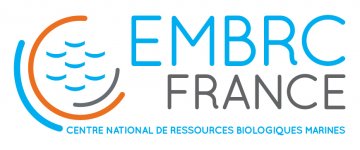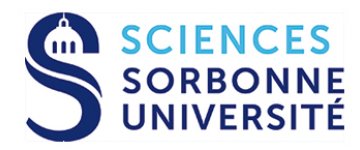Mitotic kinases: from fundamental biology to therapeutic opportunities
Our general interest lies in analyzing the molecular mechanisms that orchestrate the smooth progression of cell division. Chromosome bi-orientation, segregation into the two future daughter cells and cytokinesis are essential steps in ensuring the fidelity of the process, and must be finely regulated. Their coordination is tightly controlled by protein kinases whose expression/activity is deregulated in many cancers. Errors in these steps can also lead to aneuploidy, predisposing cells to cancerous transformation.
For several years now, we have been studying the biological functions and inter-regulation of some of these protein kinases (notably Aurora B and Haspin), in order to gain a better understanding of their mechanisms of action and use this knowledge to design new targeted anti-cancer therapies (marine origin, bio-inspired and/or synthetic) in collaboration with several medicinal chemistry teams.
We address these biological questions through two complementary and synergistic approaches, (i) reverse genetics (gene invalidation/complementation, knockout/knockin by CRISPR/Cas9), high-resolution microscopy and biochemistry, and (ii) chemobiology through the development of series of compounds inhibiting or degrading (PROTAC) the studied kinases, which directs our projects towards a translational level while providing original tools to help us answer our biological questions.
Project leader: Sandrine Ruchaud – DR CNRS (sandrine.ruchaud@sb-roscoff.fr)
People involved: Béatrice Josselin – IE CNRS; Pierre Brindeau – PhD CNRS
Former members: Omid Feizbakhsh (PhD and Post-Doc 2013-2018)
Publications:
- Wael Zeinyeh, Yannick J. Esvan, Béatrice Josselin, Mathilde Defois, Blandine Baratte, Stefan Knappǁ, Apirat Chaikuadǁ, Fabrice Anizon, Francis Giraud, Sandrine Ruchaud, Pascale Moreau. (2022) Synthesis and biological evaluation of Haspin inhibitors: kinase inhibitory potency and cellular activity. Eur. J. Med. Chem.
- Sreenivas Avula, Lang Xingfen, Peng Xudang, Micky Tortorella, Béatrice Josselin, Stéphane Bach, Stephane Bourg, Pascal Bonnet, Frédéric Buron, Sandrine Ruchaud, Sylvain Routier and Cleopatra Neagoie. (2022) Design and biological evaluation of substituted 5,7-dihydro-6H-indolo[2,3-c]quinolin-6-one as novel selective Haspin inhibitor. Journal of Enzyme Inhibition and Medicinal Chemistry.
- Charlotte Juillet, Ludmila Ermolenko, Dina Boyarskaya, Blandine Baratte, Béatrice Josselin, Hristo Nedev, Stéphane Bach, Bogdan I. Iorga, Jérôme Bignon, Sandrine Ruchaud and Ali Al-Mourabit. (2021) Simplified Marine Metabolite Analogs: First non-ATP Competitive Aurora B Kinase Inhibitors. J. Med. Chem.
- Jonathan Elie, Omid Feizbakhsh, Nathalie Desban, Béatrice Josselin, Blandine Baratte, Amandine Bescond, Julien Duez, Xavier Fant, Stéphane Bach, Dominique Marie, Matthieu Place, Sami Ben Salah, Agnes Chartier, Sabine Berteina-Raboin, Apirat Chaikuad, Stefan Knapp, Fabrice Carles, Pascal Bonnet, Frédéric Buron, Sylvain Routier and Sandrine Ruchaud. (2020) Design of new disubstituted imidazo[1,2-b]pyridazine derivatives as selective Haspin inhibitors. Synthesis, binding mode and anticancer biological evaluation. Journal of Enzyme Inhibition and Medicinal Chemistry.
- Omid Feizbakhsh, Florian Pontheaux, Virginie Glippa, Julia Morales, Sandrine Ruchaud, Patrick Cormier and Fernando Roch. (2020) A Peak of H3T3 Phosphorylation Occurs in Synchrony with Mitosis in Sea Urchin Early Embryos. Cells.
- Diana Papini, Xavier Fant, Hiromi Ogawa, Nathalie Desban, Kumiko Samejima, Omid Feizbakhsh, Bilge Askin, Tony Ly, William C. Earnshaw and Sandrine Ruchaud. (2019) Cell cycle-independent furrowing triggered by phosphomimetic mutations of the INCENP STD motif requires Plk1. Journal of Cell Science.
- Sofia-Eléna Motuhi, Omid Feizbakhsh, Béatrice Foll-Josselin, Blandine Baratte, Claire Delehouzé, Arnaud Cousseau, Xavier Fant, Jeannette Chloë Bulinski, Claude Elisabeth Payri, Sandrine Ruchaud, Mohamed Mehiri and Stéphane Bach. (2019) Neurymenolide A, a Novel Mitotic Spindle Poison from the New Caledonian Rhodophyta Phacelocarpus neurymenioides. Marine Drugs.







